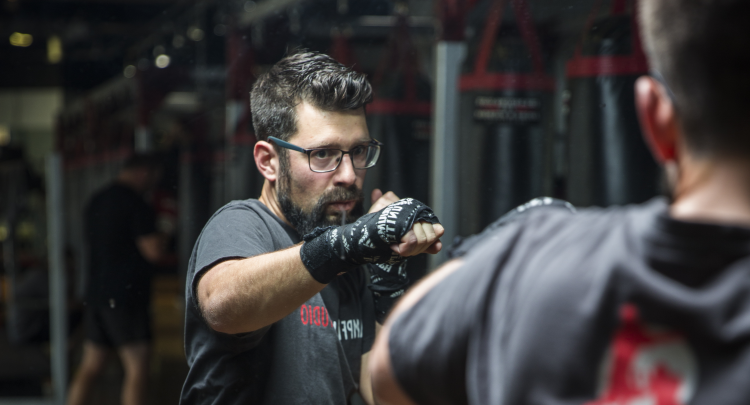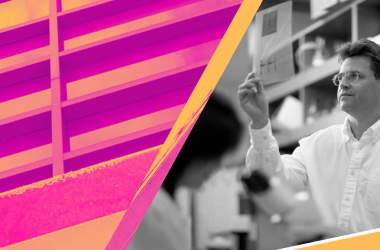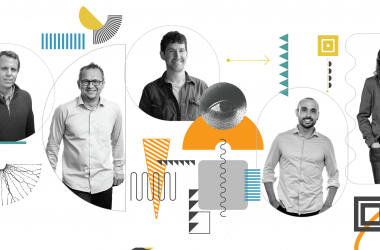Whether in the lab or the dojo, Holger Winkels, Ph.D., spends a lot of time thinking about balance. As a devoted martial arts practitioner with many years of jiu jitsu, krav maga, and muay thai under his belt, Dr. Winkels reads his opponents, finding an opening to push them off balance.
As a postdoctoral researcher in the lab of Professor Klaus Ley, M.D., he studies the immune system to figure out how to achieve the perfect balance between pro-inflammatory and anti-inflammatory T cells to prevent atherosclerosis.
Born and raised in Germany, Dr. Winkels had always been interested in science. As a high school student he hesitated between chemistry and biology when an internship at Bayer propelled him toward biology. “I actually got to synthesize aspirin and it was fascinating,” remembers Dr. Winkels. But it left him uninspired—unlike his first immunology lecture, “I immediately knew immunology was it!” Dr. Winkels’ course was set and he never wavered.
During his diploma (undergraduate) thesis, Dr. Winkels studied T cell homeostasis in atherosclerosis before he dug deeper into T cell activation during his graduate studies in the lab of Professor Esther Lutgens, M.D., Ph.D., and Professor Norbert Gerdes, Ph.D., at the Institute for Cardiovascular Prevention in Munich. “I got into my current field very early on,” he says. The added advantage of being able to split his time between Munich, Amsterdam, and Boston, Mass., “was fantastic,” he says and adds with a laugh, “when I first arrived in Boston, I wasn’t even sure I had landed in the U.S. since a lot of the announcements were in Spanish.” He quickly fell in love with the city and Americans’ cheerful and positive attitude. “It was the first thing I noticed and it was very refreshing,” he says.
After finishing his graduate studies in 2016, the newly minted Ph.D. joined the lab of Dr. Ley. “If you are in immunology, you can’t do much better than La Jolla Institute,” he states as one of the reasons. The other one was Dr. Ley.
“Klaus has an outstanding reputation and is very well known in Germany,” he says. Dr. Winkels’ extensive expertise in T cell biology in the context of atherosclerosis was the perfect match for Dr. Ley’s heart vaccine project.
“We are looking at the question why a certain subset of T cells, so called regulatory T cells, is unstable in cardiovascular disease,” he says. “The balance is skewed and our goal is to almost surgically dissect the immune system and find the dials that we can turn to stabilize regulatory T cells.” In an unexpected twist, Dr. Winkels’ experiments turned up hitherto unknown immune cells that seem to play a role in atherosclerosis. Dr. Winkels successfully competed for a SPARK grant to follow up on his finding.
When he is not in the lab, Dr. Winkels is trying to find his own balance out in nature, at a music festival, a local bar, or in the muay thai boxing gym. Probably even more than the physical aspects, he values the mental workout martial arts provide him. “It forces me to focus and really be in the moment,” he says. “It quiets my mind and gives me a feeling of peace.”





